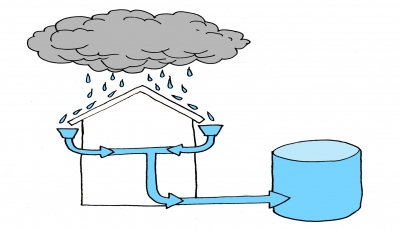The Necessary Duty of Appropriate Liquid Waste Elimination Techniques in Waste Administration
In the realm of waste monitoring, the significance of employing ideal liquid waste elimination approaches can not be overemphasized. The detailed internet of interconnected environmental, health, and safety and security factors to consider rests on the reliable administration of fluid waste. From safeguarding our communities against contamination to promoting public health and wellness criteria, the appropriate disposal of liquid waste plays a crucial duty in preserving a sustainable and healthy atmosphere. This critical function expands beyond mere waste removal, impacting a wide range of markets and facets of our day-to-days live. It is within this structure that the application of sound fluid waste elimination strategies stands as a foundation of liable waste administration methods.
Relevance of Proper Fluid Waste Removal
Why is proper fluid waste elimination crucial in keeping public and environmental health and wellness criteria? Proper fluid waste elimination is important for protecting the environment and maintaining public health and wellness requirements.
Environmental Benefits of Effective Strategies
Carrying out efficient liquid waste elimination methods not just safeguards the environment however also plays an essential role in keeping public health and wellness standards. Inappropriate disposal of liquid waste can lead to contaminants permeating right into the dirt and at some point getting to groundwater tanks, impacting both human health and ecosystems.
Additionally, efficient fluid waste elimination strategies help reduce the threat of waterborne illness. Harmful chemicals in liquid waste can have destructive impacts on aquatic and fresh water microorganisms, interfering with communities and biodiversity.
Wellness Ramifications of Inadequate Elimination
The damaging health implications connected with inadequate fluid waste elimination highlight the crucial relevance of appropriate disposal approaches and effective administration techniques. Incorrect elimination of liquid waste can lead to the contamination of water resources, presenting serious wellness threats to both people and wild animals. When fluid waste including harmful chemicals, microorganisms, or other pollutants is not appropriately eliminated and treated, it can permeate into groundwater, rivers, and oceans, compromising the high quality of drinking water and water communities.
Exposure to infected water because of poor liquid waste removal can lead to different health issue, consisting of gastrointestinal illnesses, skin infections, respiratory system problems, and much more serious problems such as body organ damages or neurological problems. In addition, the launch of neglected fluid waste right into the atmosphere can add to the spread of waterborne illness, creating public wellness situations that call for considerable sources to deal with.
As a result, implementing correct fluid waste removal techniques is vital to safeguarding public wellness and maintaining the integrity of environments. Liquid waste removal. By focusing on efficient waste management techniques, we can minimize the health and wellness risks linked with poor liquid waste elimination and promote a healthier environment for all
Function in Preventing Water Contamination
Efficient liquid waste removal techniques play a vital function in stopping water contamination and guarding public health. Improper disposal of fluid waste, such as without treatment sewer or industrial effluents, can cause the contamination of water resources, presenting severe dangers to human health and the environment. When liquid waste is not adequately removed and treated, harmful substances can leak right into groundwater, rivers, and oceans, polluting drinking water materials and aquatic ecological communities.
Polluted water can bring a series of contaminants, consisting of pathogens, heavy metals, and chemicals, that have the potential to create waterborne conditions, ecological damage, and long-lasting health impacts in humans and wild animals. Correct fluid waste removal strategies, such as wastewater treatment plants, septic systems, and industrial effluent treatment facilities, are vital for removing or reducing the effects of hazardous pollutants prior to they can get in water bodies.
Making Certain Safe Disposal Practices
Making sure proper disposal methods for fluid waste is important to shield water resources and public wellness from contamination threats. Safe disposal practices entail adhering to guidelines and guidelines set forth by environmental firms to lessen the influence of liquid waste on the atmosphere. Proper control and storage of fluid waste are essential to protect against leaks or spills that might permeate right into the dirt and pollute groundwater sources. Executing reliable therapy techniques, such as filtration or chemical processes, before disposal can also significantly minimize the unsafe results of fluid waste on the setting.

Verdict
To conclude, appropriate liquid waste elimination techniques play a vital function in waste management by stopping environmental contamination and safeguarding public health. Efficient removal techniques guarantee the risk-free disposal of liquid waste, decreasing the negative influence on environments and water sources. It is crucial for individuals and sectors to embrace accountable techniques to minimize the damaging results of incorrect fluid waste disposal.
In the world of waste monitoring, the relevance of using proper fluid waste elimination approaches can not be overstated. It is within this structure that the execution of sound liquid waste removal methods stands as a cornerstone of accountable waste management practices.
